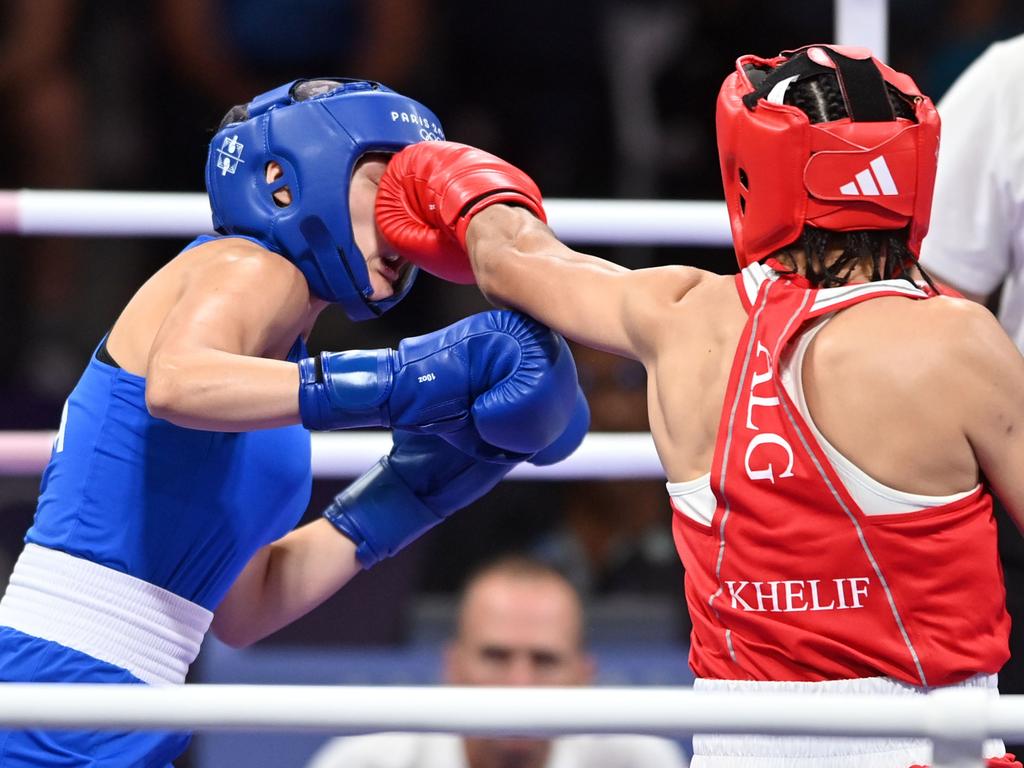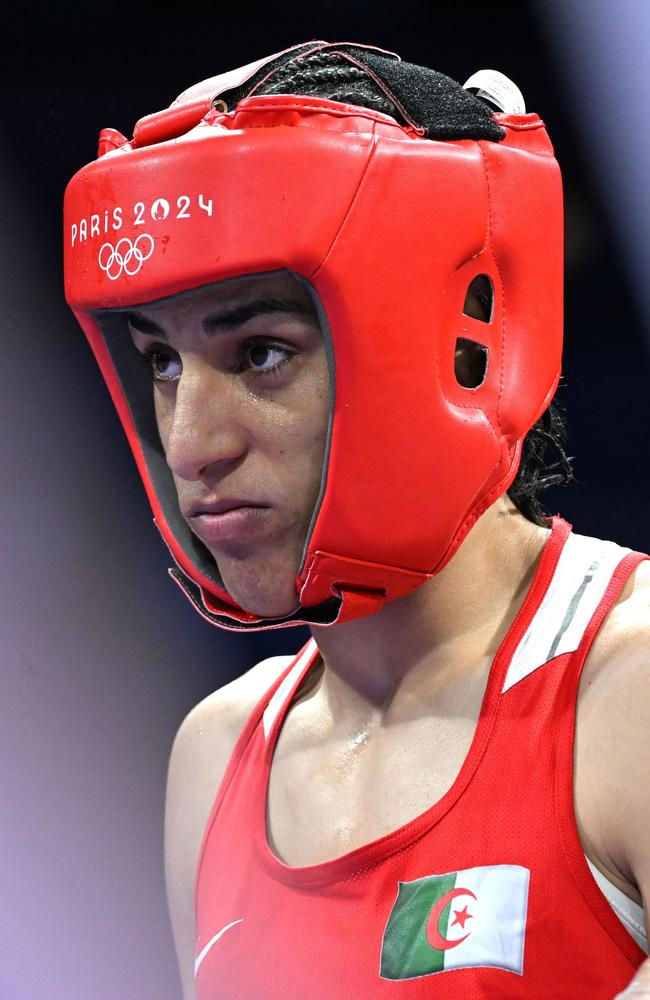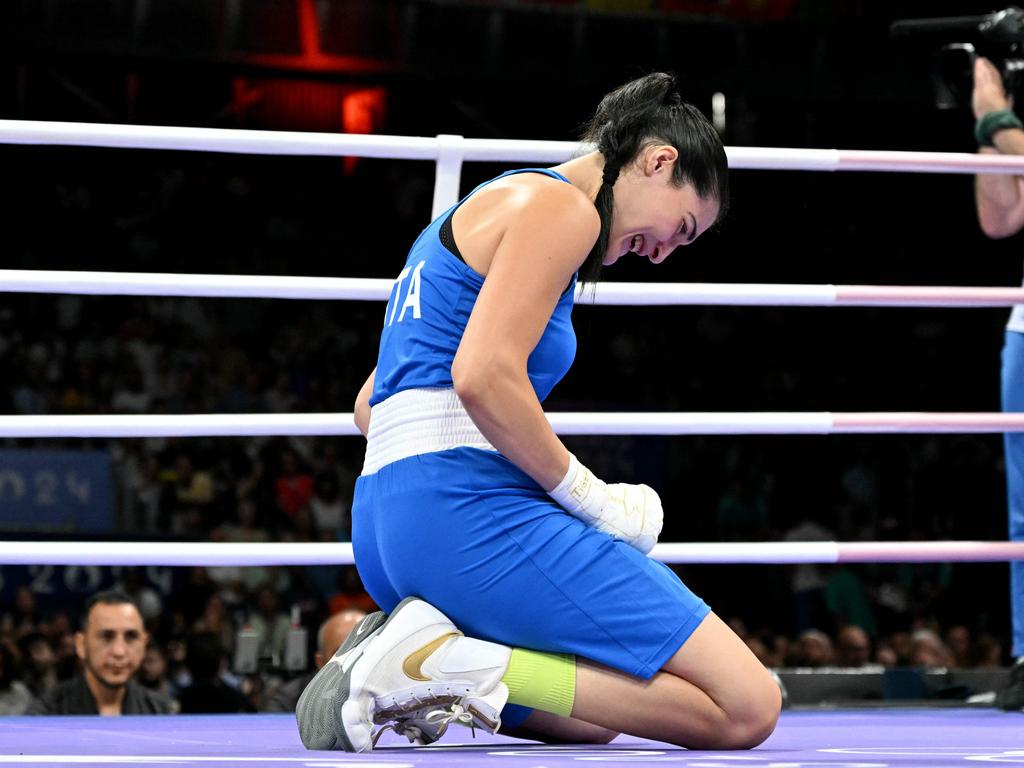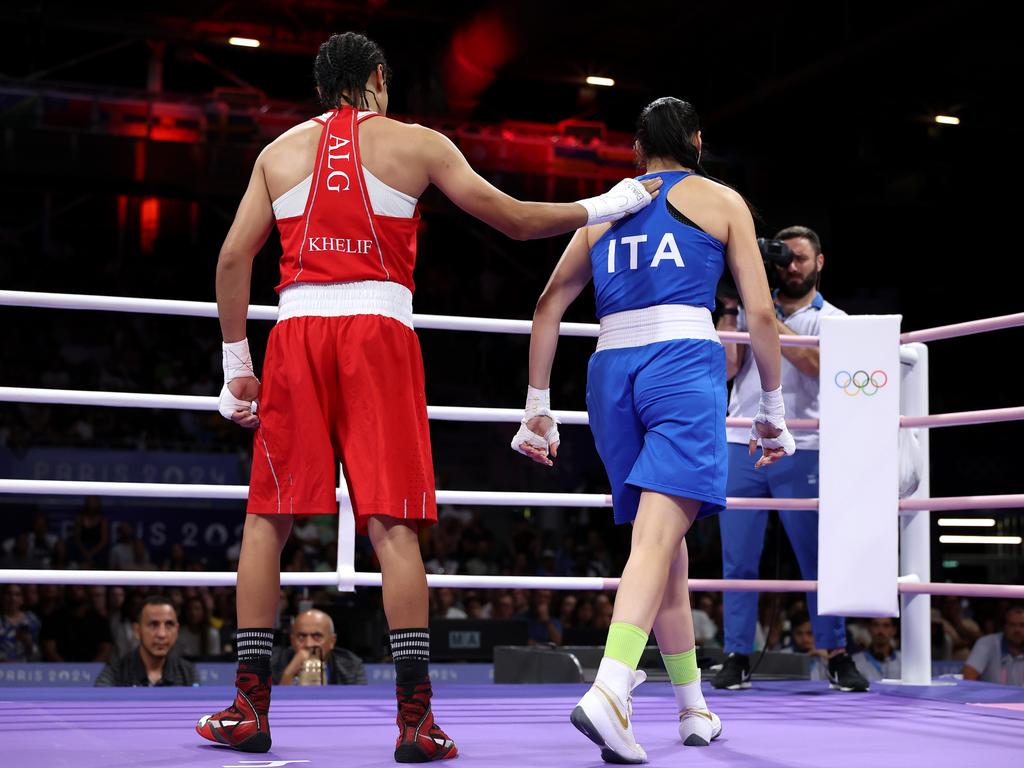Olympics: Boxing controversy rocks Paris Games after gender eligibilty rules blow-up
Boxing is at the centre of one of the Olympic Games’ most explosive controversies in recent history, with two athletes at the centre of a furious row about gender eligibility rules.
Boxing is at the centre of one of the Olympic Games’ most explosive controversies in recent history, with two athletes at the centre of a furious row about gender eligibility rules.
Algerian boxer Imane Khelif and Taiwan’s Lin Yu-ting have become the central figures of a Paris powder keg, after the International Olympic Committee approved the duo to compete at the 2024 Olympics.
Khelif and Yu-ting competed at the Tokyo Games in 2021, but last year were disqualified from the 2023 world championships in New Delhi run by the International Boxing Association (IBA).
The issue exploded on Thursday night (AEST) when Khelif demolished Italy’s Angela Carini in just 46 seconds.
Carini was reduced to tears after copping a punch that busted her nose, and she and her team made a strong statement calling Khelif’s participation into question.

What is the controversy at the Olympic Games?
The IBA, in a statement on Wednesday, said Lin and Khelif were disqualified from the world championships as “a result of their failure to meet the eligibility criteria for participating in the women’s competition”.
“The athletes did not undergo a testosterone examination but were subject to a separate and recognised test, whereby the specifics remain confidential,” it added.
IOC spokesman Mark Adams told reporters this week that they “are women in their passports and it’s stated in there that they are female”.

The IOC reiterated the same line as the furore raged following the easy win for Khelif, who will return to the ring on Saturday.
The IOC accused the IBA of making “an arbitrary decision”, adding: “The current aggression against these two athletes is based entirely on this arbitrary decision.”
Algeria and Taiwan sprang to the defence of their boxers.
Taiwan President Lai Ching-te gave the 28-year-old Lin his public backing, saying on Facebook “we should stand united and cheer for her”.
Algeria’s Olympic Committee (COA) condemned what it called “malicious and unethical attacks directed against our distinguished athlete, Imane Khelif, by certain foreign media”.
The COA hit out at “lies” that were “completely unfair”.

Why did Iman Khelif fail the gender test?
Khelif was disqualified during the boxing world championships last year after “elevated levels of testosterone failed to meet the eligibility criteria,” according to the IOC’s website.
Khelif and boxer Taiwan’s Lin Yu-ting were both disqualified from the New Delhi event by the International Boxing Association (IBA) under Russian oligarch Umar Kremlev.
However because of governance, financial and ethical issues at the IBA, it was effectively expelled from the Olympic movement last year.
The IOC has taken responsibility for organising the boxing at the Paris Games.
In a statement on Wednesday, the IBA said the two boxers “did not undergo a testosterone examination but were subject to a separate and recognised test, whereby the specifics remain confidential”.
IOC spokesman Mark Adams said everyone taking part in the women’s event was “complying with competition eligibility rules”.

“ These athletes have competed many times before for many years, they haven’t just arrived, they competed in Tokyo,” he said.
More Coverage
“Testosterone is not a perfect test. Many women can have testosterone which is in what would be called ‘male levels’ and still be women, still compete as women,” he said.
“This idea that suddenly you do one test for testosterone and that sorts everything out — not the case, I’m afraid,” he added.
“I hope we’re all agreed that we’re not calling for people to go back to the bad old days of sex testing, which was a terrible thing to do.”





